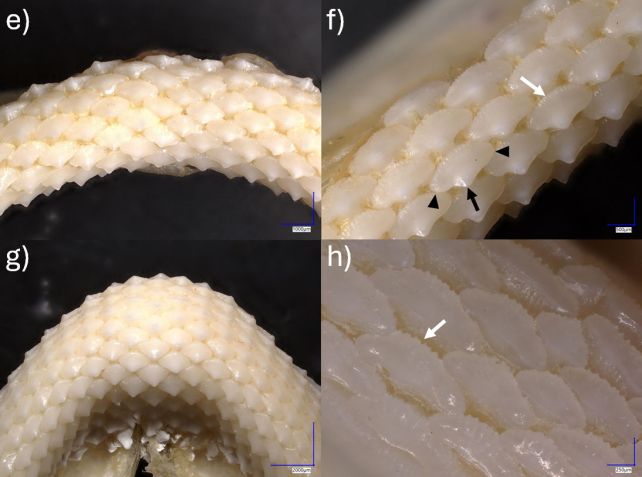LISTEN to this eerie audio, which is the first-ever recording of noises made by sharks.
Scientists were astounded when they realised they had captured sounds coming directly from the famously "silent" creatures.
Whales and dolphins are well-known for making a range of high-pitched clicks and pulses.
And until now, sharks were assumed to be their silent ocean companions.
But no longer, after marine biologists from Massachusetts surprised themselves and the world by proving some sharks do have a voice.
Carolin Nieder, a marine biologist at Woods Hole Oceanographic Institution in Massachusetts, told ScienceAlert: “I was very surprised. I was under the assumption that sharks don’t make sounds."
read more in science
The scientists made the accidental discovery while researching the hearing ability of rig sharks - a small inland species.
While she was handling one specimen, Carolin noticed a clicking, snapping sound coming from the fish - similar to the noise of an electric spark.
The sound is most likely produced by the shark snapping its teeth together, according to the study published in .
Other fish can make sounds by vibrating their swim bladders, but sharks don't have these
Most read in Science
As such, the science community believed they were "silent, unable to actively create sounds".
To investigate Carolin's discovery, her team put ten rig sharks in a tank and kitted it out with underwater microphones.
All of the sharks were found to "produce clicking sounds underwater" while being handled or moved between tanks.
The sharks emitted on average nine clicks in the 20 seconds after being touched.
Most of these came in the initial ten seconds, suggesting the sounds were in reaction to the disturbance.
The exact source of the sound remains unclear, but researchers believe the rigs snap and rub together their plate-like teeth, which are used to crush crustaceans.
The sharks were quiet during feeding and swimming, so biologists deduced the sound was a defence mechanism - rather than a form of communication.
Whales and dolphins, on the other hand, frequently communicate within their species.
Carolin said: “One possibility could be that the sounds are a form of a startle response - in the wild perhaps in response to an attack by a larger shark or marine mammal."
However, the team has more work ahead to figure out whether the sharks make the same sound in the wild.
Neil Hammerschlag, president of Atlantic Shark Expeditions, told CNN: “This study opens up the possibility of these smaller sharks ‘sounding the alarm'.
Read More on The Sun
“While we really don’t know if the sound produced by the rig sharks was simply a byproduct of being handled [...] it does open up some new questions, possibilities and avenues for future research.”
Scientists are yet to determine whether other shark species are similarly vocal, but Carolin thinks there "is a chance other sharks are making similar noises".














